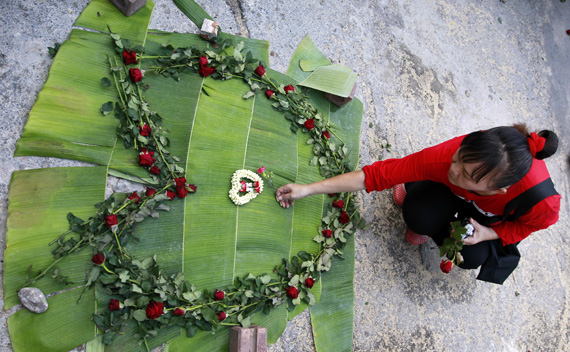The New Normal
More on:

Now that Thailand has resolved the short term crisis of the red short protestors occupying – and often destroying – parts of central Bangkok, the Thai government has launched a charm offensive designed to reassure foreign investors, tourists, American officials, and the international media that the country has returned to normal. Last week, Bangkok sent an envoy of Prime Minister Abhisit Vejjajiva to Washington to deliver this message to opinion leaders.
In reality, the situation is far from normal – or, at least, a new normal is developing. The current round of Thai unrest is starkly different from the previous cycles in 1973, 1976, and 1992. For one, back then the main antagonists fostered reconciliation through a kind of gentleman’s agreement to exit the political stage, either through going into exile or another means. This time around, neither Abhisit, who was in charge during the bloody crackdown last month, nor former prime minister Thaksin Shinawatra, show any signs of willingness to leave the political stage. What’s more, while in the past the security forces generally were united in their ability to crack down upon and control the opposition, this time Thai leader cannot be so sure. The violence in April and May revealed that there are conflicting opinions within the security forces, including some troops likely to be sympathetic to the red shirt movement.
Third, while in previous crises the opposition had little ability to get out their message because the government had put a lock on the mainstream Thai press, now the red shirt movement has their own websites, radio stations, and online social networks. The Thai government is trying to resort to old means of control, including blasting the foreign media, warning the domestic media to fall into line, and banning websites, but it is proving a far harder task now.
Finally, and perhaps most important, while in the past reconciliation was possible largely because the monarch, Bhumibhol Adulyadej, was able to bring both sides together, now his unifying role is much diminished. The red shirt movement and the government and its Bangkok-based supporters do not hail from the same social background – a sharp contrast from, say, 1992, when both the protesters and the army leaders came from the royalist Bangkok-based middle class. As a result, any kind of royally-sponsored reconciliation today is unlikely to have as great an effect, as many red shirts have lost some trust in the impartiality of the palace.
The result, right now, is another looming explosion. The government has, quietly, moved toward outright authoritarian rule, jailing protestors and supposed sympathizers and cracking down on the media; some government allies are suggesting that Abhisit’s government should be allowed to retain power for almost another decade without calling a new election. The red shirt movement, meanwhile, has become more atomized, angrier, and, potentially, even more violent. If this is the new normal, I don’t want to see abnormal.
More on:
 Online Store
Online Store
